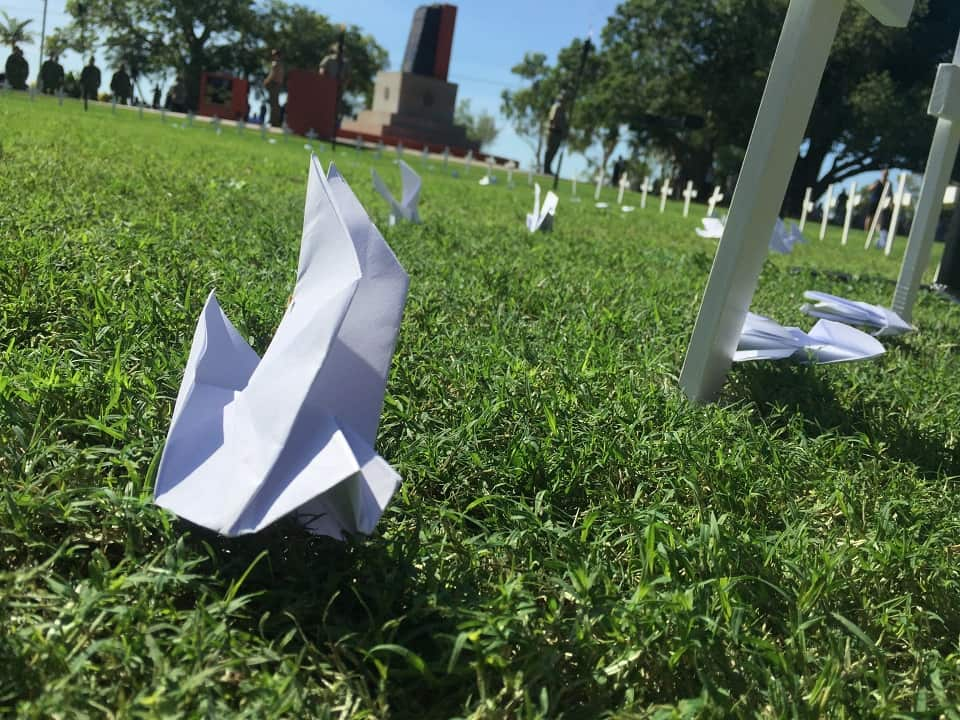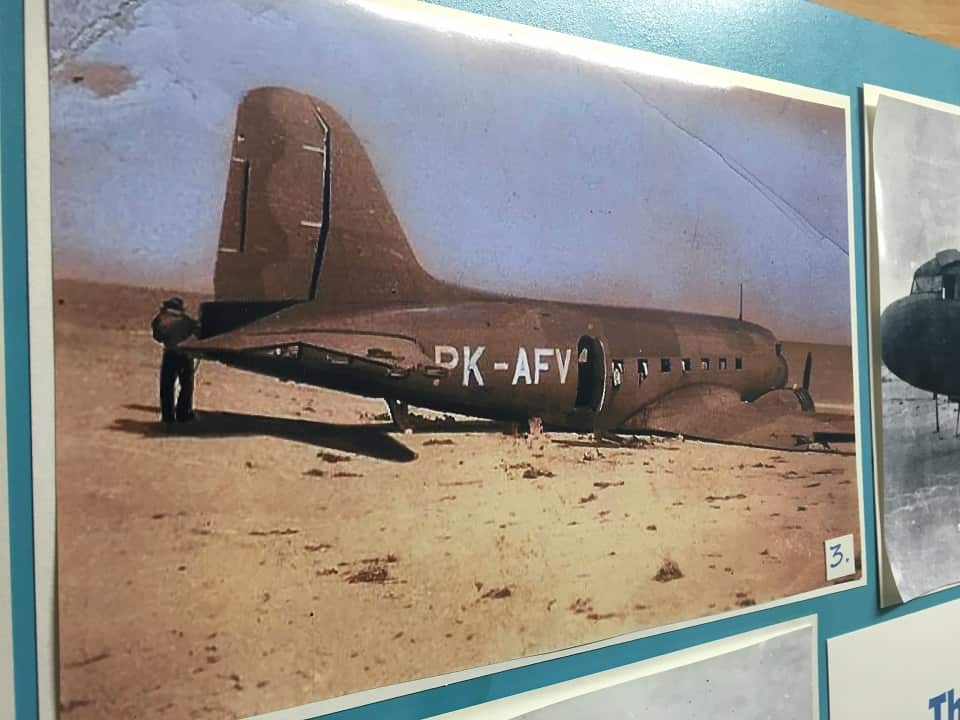At the memorial service to mark 75 years since Japan first attacked Western Australia, the country’s deputy mission has expressed his country’s remorse for the first time.
Takashi Katae told the crowd at Broome’s Bedford Park that he was honoured to be the first Japanese representative to attend the memorial.
“On behalf of the government of Japan, I express my sincerest condolences for the countless lives lost within the maelstrom of war,” he said.
“Japan will never forget that it inflicted immeasurable damage and suffering on Broome and other parts of Australia.”
On the morning of March 3, 1942 a squadron of nine Japanese Zero fighter planes descended on the remote WA town in the state’s north west.
In their sights were the grounded allied aircraft at the Broome airport, which were virtually defenceless.
They were torn apart as the Japanese strafed the field destroying aircraft and killing allied soldiers including Australian, Dutch, American and British men.
Out in Roebuck Bay south of the small Broome township, a flotilla of 16 Dutch flying boats would not escape the Japanese.
On board the planes were scores of Dutch military officers and their families who had fled the Imperial Army’s march the night before as it spread through Java, then the Dutch East Indies.
Netherlands Ambassador Erica Schouten told the memorial that the attack had taken everyone by surprise.
“They thought they had reached safety here in Australia, tragically they had not,” she said.
The exact number of those that died is not known, but at least 88 are believed to have perished.
Among the number included an infant and other small children.

No time for shoes
As the Japanese attacked, 10-year-old Elly Koens was sitting on the wing of a plane trying to take her shoes off.
The now 85-year-old said her mother was yelling at her to just get in the water.
“I said, ‘no, I’ve got to take my shoes off mum’ and she said that doesn’t matter get in the water,” Ms Koens said.
“And I said, ‘no, my shoes have got to come off’ and, of course, my mother was as anxious as could be.”
Her plane was hit again by the Japanese and she slid into the water.
Other children were not so lucky. One boy was standing next to Ms Koen’s brother on the other wing and was cut down by the Japanese bullets.
“There was no feeling then,” Ms Koens said.
“You did as you were told.”
Ms Koens said her Dutch naval officer father Simon Koens was hit by shrapnel and with her mother and brother they were forced to tread water for hours waiting to be rescued.
“So my mum had to keep her eye on my father, my brother and myself,” she said.
“And mum was the one who gave us orders when we had to dive underneath the burning oil (on the surface) and come up on the other end of the flames.”

Against the odds
Also at Friday’s memorial was 78-year-old Sidney Muller whose father Johannes Muller survived after his plane was shot down by the Japanese.
Mr Muller was a radio operator with the Dutch KNILM airline and was on board a Dakota DC-3 fleeing Indonesia with civilians on board.
After their plane crash landed at Carnot Bay north of Broome, Mr Muller’s father watched as the Japanese came around again and strafed the plane once more.
A mother and her infant son did not survive the strafing.
Mr Muller said his father would have felt her death personally.
He said his father had put himself and his mother on a plane evacuating Schiphol, Amsterdam two years earlier as the Germans advanced so he would have been heartbroken to see a similar attempt to reach safety fail.
“I feel I understand my father more as a result of being out here,” Mr Muller said.
“The overriding thing is the compassion he must have felt at that poignant moment with the mother and child on the plane having done the same thing two years earlier.
“That must have been quite a shock for him.”
But the survivors’ ordeal was not over. With little water or food, they were stranded in an unforgiving environment.
Mr Muller and another crewmember were sent into the remote interior to try to find help.
They would be saved by a group of Aboriginal people and, ironically, taken to a former German mission.
But Mr Muller was never aware of his father’s harrowing experience until only a year ago after he began researching his family’s history.
His father and mother had divorced soon after the war.
“He’s a 31-year-old man at the time, to be put through this kind of trial, in these kinds of conditions, you can’t have anything but admiration.”

